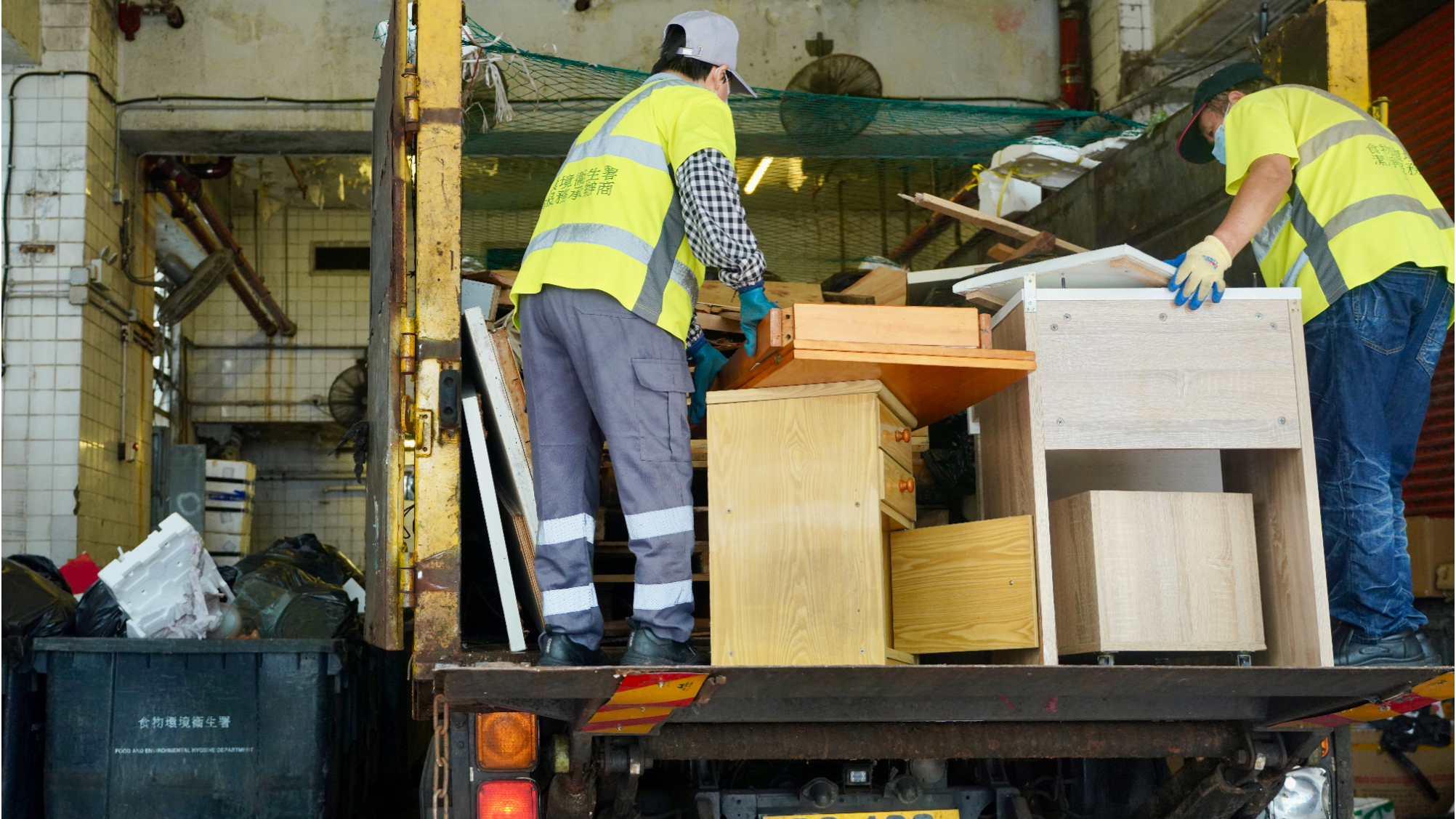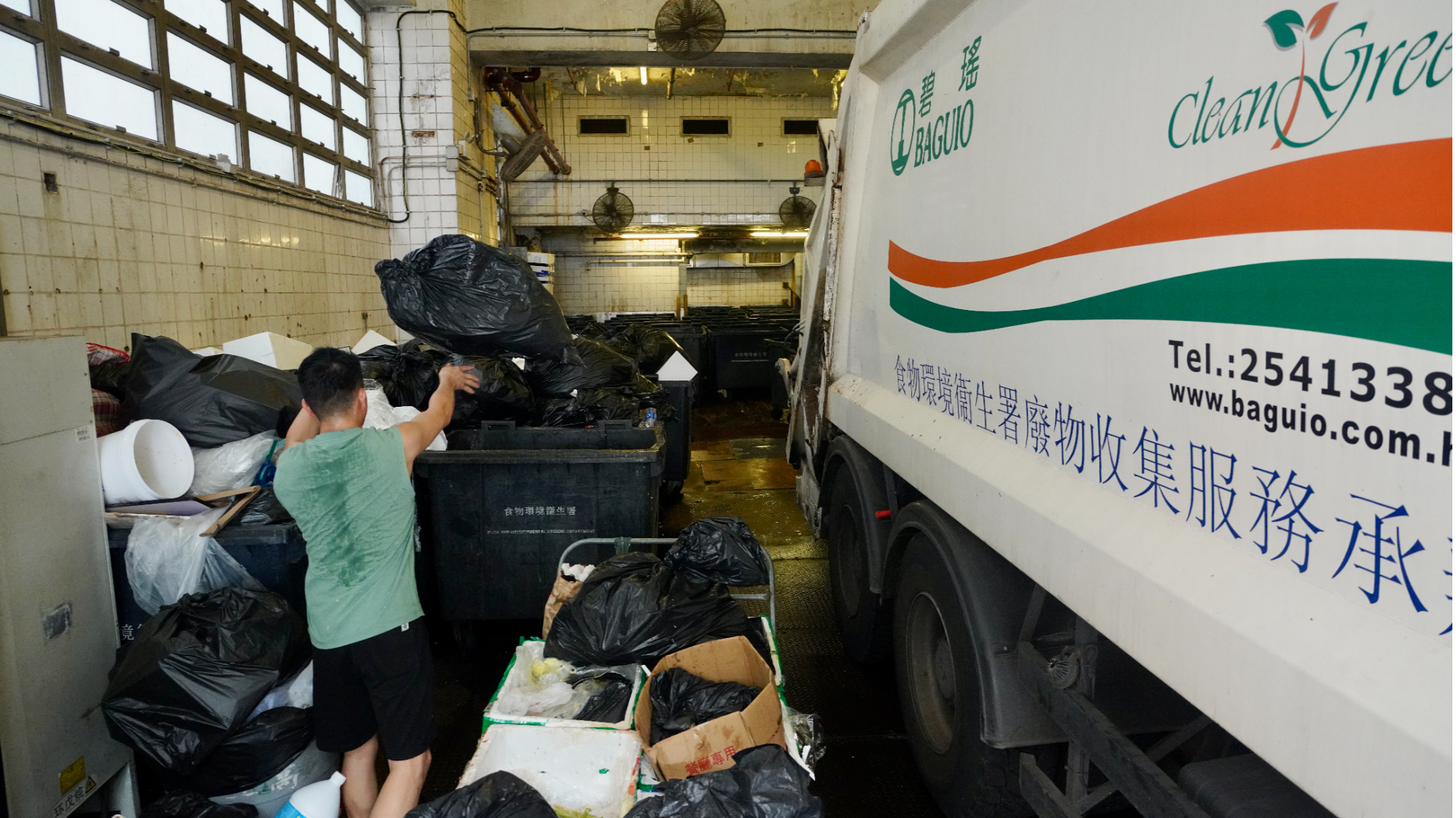
The Hong Kong Special Administrative Region government on Monday will delay implementation of the city’s waste-charging program for the third time amid widespread criticism of the plan, as officials pledged to beef up education and support measures.
The city’s “pay as you throw” program was scheduled to be implemented citywide on Aug 1, after being postponed in late 2023 and again on April 1.
Cheuk listed some problems exposed during the trial run, including insufficient participation rate due to cumbersome procedures, a significant increase in cleaning employees’ workload, and rising expenses in the catering industry and nursing homes
On Monday, Deputy Chief Secretary for Administration Warner Cheuk Wing-hing told members of two Legislative Council panels that the program will be shelved, as the eight-week trial run, which concluded on Friday, revealed the program’s unpopularity.
READ MORE: Hong Kong delays citywide waste charging until Aug 1
Cheuk said the delay proposal, put forward by Secretary for Environment and Ecology Tse Chin-wan, has been received by Chief Executive John Lee Ka-chiu. Authorities will soon gazette a notice that will abolish the program’s Aug 1 implementation date.
During a joint meeting with LegCo’s Panel on Environmental Affairs and Panel on Food Safety and Environmental Hygiene, Cheuk acknowledged that studies, media reports, and opinions from the pilot program’s participants show that 70 to 80 percent of residents were opposed to implementing the program as scheduled on Aug 1, with some even saying the program should be abolished outright.
Cheuk listed some problems exposed during the trial run, including insufficient participation rate due to cumbersome procedures, a significant increase in cleaning employees’ workload, and rising expenses in the catering industry and nursing homes.
The government also noticed that inadequate recycling facilities, a weak recycling culture, and the misconception of the government’s intent also hindered the program’s promotion, Cheuk said.
Cheuk said that authorities will study how to optimize the program through more education and increasing recycling facilities, adding that changing the habits of more than 7 million people will be a long-term process that will require patience and systematic work.

In the middle of next year, the government will report to LegCo on the progress of optimization and the public’s participation in waste reduction, and the government’s advice, he added.
Beginning on Saturday, authorities will gradually provide free designated garbage bags to every household in public housing estates and some selected private buildings and residential estates to cultivate people’s habits
Also at the meeting, Tse said the setback has not weakened the government’s resolve to cut solid waste.
Regarding waste recycling, Tse said the government in the coming year will double the number of recycling facilities for kitchen waste, accounting for one-third of the city’s solid waste, in public-housing estates and large private residential buildings.
The government will also extend the operating hours of the stations under “Green@Community” — a government-run recycling network — and quadruple the number of stations, from 200 to 800.
Beginning on Saturday, authorities will gradually provide free designated garbage bags to every household in public housing estates and some selected private buildings and residential estates to cultivate people’s habits.
Jonathan Wong Woon-Chung, professor emeritus of biology at Hong Kong Baptist University, said he is disappointed in the last-minute halt of the program, arguing that the city has been discussing it for over a decade, and the time is ripe to put it into action. Wong said that Hong Kong should not completely stop the program, adding that the government has failed to provide clear guidance and public education. This has led many residents to believe that the charges will not only increase the workload of cleaners and recyclers, but also add to their expenses, he said.
Liam Wong, a student who lives in a building participating in the pilot program, said that he believes the government’s decision is based on overall considerations, but still hopes the waste-charging program will be implemented eventually to fundamentally help the city reduce waste.
READ MORE: Fostering the waste recycling industry across city
Simon Wong Ka-wo, president of the Hong Kong Federation of Restaurants and Related Trades, told a radio program on Monday that the catering industry will be heavily affected due to increased operating costs and manpower. Some larger-scale restaurants have predicted that their expenses may increase HK$8,000 ($1,025) to HK$10,000 a month because of the requirement to purchase the green designated bags, he said.
In a joint open letter to Lee on Monday, multiple environment-concerning groups, including the Green Earth, Civic Exchange and Friends of the Earth, suggested the government carry out the waste-charging program in phases and set waste-cutting goals.
They also urged the government to build more recycling facilities and hasten the implementation of polluter-pay policies to support the program.
Contact the writer at amberwu@chinadailyhk.com


